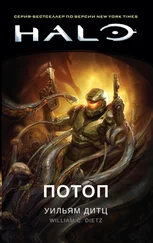Overman looked away. “Fifty-six, including the air crews.”
That was something like half of the people who’d gone on the mission. Mac wanted to cry but couldn’t because she was the CO. And COs have to suck it up. Mac struggled to swallow the lump in her throat. “And the wounded?”
“Just about everyone,” Overman replied. “Nine of them are serious.”
“Shit. And Olinger?”
“Follow me,” Overman said, and led her forward.
And there, kneeling next to a wounded soldier, was New York Times correspondent Cory Olinger. His clothes were covered in blood, and he was helping a medic. “Olinger is okay for a fucking reporter,” Overman said. And that, Mac knew, was high praise.
A pilot spoke over the intercom. “We’re flying at thirty thousand feet with an F-15 Strike Eagle off each wingtip. Oh, and one more thing… General Jones sent you a message: ‘Well done. Take the rest of the day off.’”
That produced laughter, and Mac managed a smile. Mac’s Marauders. Her Marauders. A great deal had been lost… But something had been gained as well.
CHAPTER 12

It would be our policy to use nuclear weapons wherever we felt it necessary to protect our forces and achieve our objectives.
—ROBERT MCNAMARA
HOUSTON, TEXAS
After carving a path of destruction across Mexico, what remained of Hurricane Gloria was about to strike Texas. And, as the black SUV wound its way through the streets of Houston, General Bo Macintyre caught occasional glimpses of the low-hanging clouds that were sweeping north from the Gulf. Drops of rain appeared on the windshield, only to be obliterated as the wipers squeaked back and forth. I wish I could get rid of my problems that easily, Bo thought to himself.
And there were problems… lots of them. Not the least of which was dealing with self-obsessed, weak-kneed, poll-driven politicians. But that’s how he had to spend his day. So be it. He would use the opportunity to fight for more of everything. Because that’s what he needed in order to win: more soldiers, more weapons, and more time. And if the past was a guide to the future, he would get at least some of what he wanted.
The Hotel Americas was shaped like a huge cube and boasted more than a thousand rooms. The building seemed to swallow the SUV as the vehicle followed a ramp down to the formal entryway below. A doorman hurried to open the door and, since Bo was dressed in civilian clothes, was unlikely to recognize the stern-looking general who appeared on TV at least once a week.
Other people did, however… including two of Bo’s aides, who were dressed in mufti. They fell in behind Bo as a very solicitous assistant manager led the party to a private elevator. It took them to the fourth floor, where many of the hotel’s meeting rooms were located.
Another assistant manager was waiting to greet Bo as he stepped out. And he was “thrilled” to have such a distinguished guest in the hotel.
Bo felt nothing but contempt for suck-ups and men of military age who weren’t in uniform. So he didn’t bother to acknowledge the manager’s comments as he was shown into a medium-sized meeting room. And that was when Bo felt the first stirrings of concern. The tables were facing each other, and one was a good deal longer than the other. Five chairs were arranged behind it, while there was only one at the small table. Why? Had a mistake been made? Or was he about to be grilled?
There was some milling around, a good deal of glad-handing, and plenty of fake conviviality as a gaggle of civilians entered from an adjoining room. Had they been in a meeting? To discuss him ? Bo sensed the answer was yes.
Finally, as the bullshit storm began to subside, staffers were asked to leave. And that included Bo’s aides. He knew what that meant… The civilians were going to kick his ass but planned to do it privately, to prevent leaks.
After taking his seat, Bo found himself facing a panel that consisted of President Morton Lemaire, Secretary of Defense Harmon Gill, Secretary of the Army Orson Selock, National Security Advisor Mary Chaffin, and the Director of the Confederate Intelligence Agency Anthony Vale. Lemaire opened the meeting. “First, please allow me to thank you for coming, General Macintyre… We know how busy you are.”
That was bullshit, of course, since Bo had no choice. But, like all generals, Bo was part politician. “You’re welcome, Mr. President. And thank you for inviting me… I’d rather be here than working on the budget.” That produced the predictable laugh.
“So,” Lemaire began, “I’d like to congratulate you, your staff, and your soldiers on the capture of Albuquerque! It was the sort of lightning strike that General Patton would have approved of.”
For some reason, Bo’s superiors were obsessed with World War II generals, and rarely made mention of men like Harold G. Moore, Norman Schwarzkopf, and Stanley Allen McChrystal. Probably because they’d never heard of them. “Thank you, sir.”
“And your people did a helluva job down in Brownsville,” Gill added. “They kicked Cabrera’s ass.”
Victoria had been in charge of that mission, and Bo felt a momentary flush of pride. “Thank you, sir.”
“Plus, I would be remiss if I failed to mention the commando raid on Norfolk,” Lemaire added. “Three ships sunk. That’s nothing to sneeze at.”
They’re warming me up, Bo thought to himself. “I hate to admit it, but the navy might have had something to do with that one,” Bo replied. The joke produced a round of chuckles, but Bo knew that an avalanche of shit was coming his way.
“But,” Gill said, “in spite of our considerable success, I would describe the present state of the war as a stalemate. Would you disagree with that assessment?”
Gill’s father was a well-known conservative politician, and Gill had been the CEO of a large defense contractor prior to the war. The man was likeable in many ways, and a dyed-in-the wool Libertarian, which Bo perceived as a good thing. But what Gill wasn’t was a soldier… And like so many civilians, Gill had a simplistic view of war.
Still, Gill was the boss, and Bo understood the need to choose his words with care. “I agree in the broadest sense, sir. Although the specifics are important. For example… we have the edge where orbital warfare is concerned, and they have the capacity to build more planes than we can.”
“So noted,” Gill said. “But rather than analyze the strengths and weaknesses of both sides, the purpose of this meeting is to find a way to win . And who better to consult than the Chairman of the Joint Chiefs? So tell us, General… Rather than keeping on keeping on, is there some way we could break the stalemate and put some points on the board now ?”
Bo looked from face to face. “That depends,” he temporized.
“On what ?” Chaffin demanded.
“On what you’re willing to do,” Bo answered. “Are you willing to do the hard things? Will you authorize the air force to carpet bomb Chicago? Will you green-light the use of cluster bombs? And what about tactical nukes? If we nuke a hundred targets on Monday, we will be victorious by Friday.”
Lemaire frowned. “But what good is a nuclear wasteland?”
“It wouldn’t be good so far as our enemies are concerned,” Bo replied. “But the use of tactical nuclear weapons could save the lives of our troops, the same way it did when our great-grandparents dropped a bomb on Hiroshima during World War II. A massive attack would destroy the Union’s factories, break the enemy’s will to fight, and put an end to Sloan’s socialistic government.”
Читать дальше
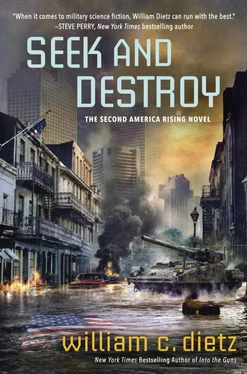

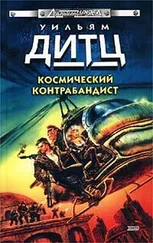
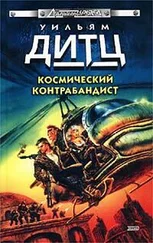
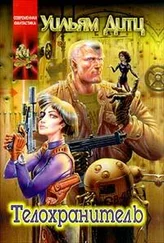
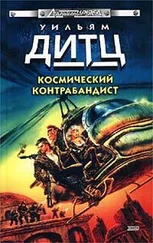
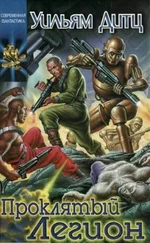
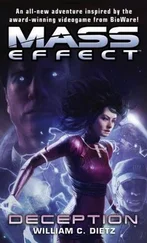


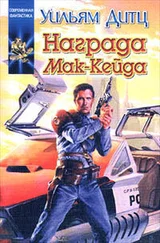
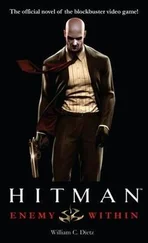
![Уильям Дитц - Избранные произведения в одном томе [Компиляция]](/books/389750/uilyam-ditc-izbrannye-proizvedeniya-v-odnom-tome-k-thumb.webp)
